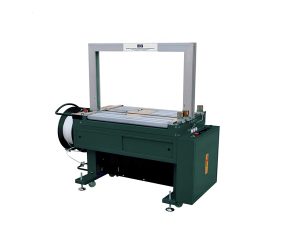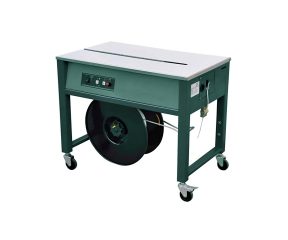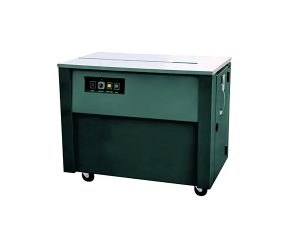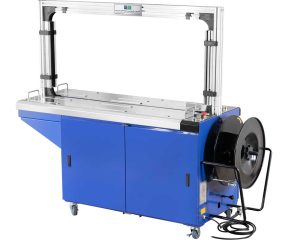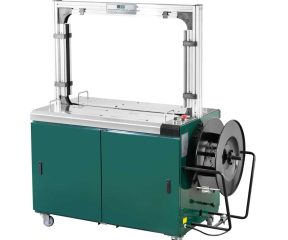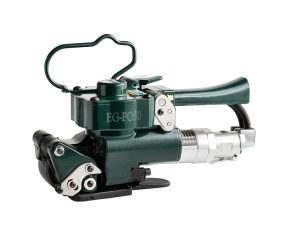
The Importance of Packaging Machinery in the Industry
Packaging machinery has revolutionized the way goods are packaged, offering numerous benefits to businesses. It not only enhances efficiency but also ensures consistent and reliable packaging results. With the help of advanced technology and automation, packaging machinery reduces human error, increases productivity, and optimizes resource utilization. Whether you are a small-scale business or a large manufacturing company, investing in packaging machinery can significantly impact your operations by improving throughput, reducing costs, and enhancing customer satisfaction.
Advantages of Using Packaging Machinery and Tools
The utilization of packaging machinery and tools provides several advantages that contribute to the overall success of businesses. Firstly, these tools enable faster packaging processes, allowing for higher production rates and shorter lead times. Secondly, they ensure accuracy and consistency in packaging, reducing the risk of product damage or loss. Additionally, packaging machinery enhances safety by automating tasks that could potentially pose risks to workers. By leveraging the advantages of packaging machinery and tools, businesses can gain a competitive edge, boost operational efficiency, and deliver superior quality products.
Types of Packaging Machinery and Their Functions
Packaging machinery encompasses a diverse range of equipment designed to perform specific packaging tasks. Here, we explore some common types of packaging machinery and their functions:
- Wrapping Machines: Wrapping machines wrap products with materials like shrink films or stretch films, providing protection and stability during transit.
- Strapping Machines:Strapping machines work by tightly wrapping a strap, usually made of materials like plastic or steel, around the package or bundle. The strapping material is tensioned, securely fastened, and then cut to the desired length. This process effectively holds the package together, preventing shifting, opening, or damage of the packaged goods. Strapping machines are commonly used in a variety of industries such as logistics, manufacturing, distribution centers, and warehouses, where the need for sturdy and secure packaging is paramount. They are particularly effective in packaging bulky or heavy items, palletized loads, or bundles of products.
- Filling Machines: These machines accurately fill products into containers, such as bottles or pouches, ensuring precise measurements and reducing product waste.
- Capping Machines: Capping machines securely seal containers with caps or lids, providing airtight and tamper-evident packaging.
- Labeling Machines: Labeling machines apply labels to products or packaging, incorporating important information such as branding, barcodes, and regulatory compliance.
- Cartoning Machines: Cartoning machines assemble and seal cartons, enabling efficient packaging of products in boxes.
- Coding and Marking Machines: These machines print essential product information such as batch numbers, expiration dates, or barcodes onto packaging materials.
- Case Packing Machines: Case packing machines automate the process of packing products into cases or containers, ensuring uniformity and efficiency.
Key Considerations When Choosing Packaging Machinery
Selecting the right packaging machinery is a critical decision that requires careful consideration. Here are some key factors to keep in mind when choosing packaging machinery:
- Packaging Requirements: Understand your specific packaging needs, including the type of products, production volume, and packaging materials.
- Machine Compatibility: Ensure the chosen machinery is compatible with your existing production line or can be integrated smoothly into your operations.
- Quality and Reliability: Look for reputable manufacturers known for producing high-quality, reliable machinery that meets industry standards.
- Cost and ROI: Consider the initial investment cost, ongoing maintenance expenses, and potential return on investment (ROI) when evaluating machinery options.
- Training and Support: Assess the availability of training programs, technical support, and access to spare parts to ensure smooth operation and minimal downtime.
Common Applications of Packaging Machinery and Tools
Packaging machinery and tools find applications across various industries. Here are some common sectors where these solutions are widely utilized:
- Food and Beverage: Packaging machinery is crucial in the food and beverage industry for packaging products such as snacks, beverages, frozen foods, and more.
- Pharmaceuticals: The pharmaceutical industry relies on packaging machinery to ensure the safe and sterile packaging of medicines and medical devices.
- Manufacturing: Packaging machinery aids in packaging finished goods across various manufacturing sectors, such as automotive, electronics, and consumer goods.
- E-commerce and Logistics: With the rise of online shopping, packaging machinery is essential for efficient packaging and shipping of products ordered online.
Enhancing Efficiency with Automated Packaging Machinery
Automation has transformed the packaging industry by revolutionizing packaging processes and improving efficiency. Automated packaging machinery offers benefits such as increased production rates, reduced labor costs, improved accuracy, and enhanced product safety. By incorporating automated solutions like robotic packaging systems, businesses can streamline operations, eliminate repetitive manual tasks, and achieve higher throughput without compromising on quality.
Understanding the Different Types of Packaging Tools
In addition to packaging machinery, various tools and accessories play a crucial role in the packaging process. These tools include:
- Strapping Tools: Strapping tools are used to securely fasten packaging straps around products or containers, ensuring stability during transportation.
- Sealing Tools: Sealing tools, such as heat sealers or tape dispensers, facilitate the sealing of packaging materials, ensuring product integrity and protection.
- Cutting Tools: Cutting tools like box cutters or utility knives are essential for opening packaging materials or trimming excess materials.
- Cushioning and Protection Tools: Tools like foam inserts, bubble wraps, or edge protectors provide cushioning and protection to fragile or delicate products.
How Packaging Machinery Improves Productivity
Packaging machinery plays a crucial role in boosting productivity within packaging operations. By automating manual tasks, packaging machinery reduces the time and effort required for packaging, allowing businesses to achieve higher output rates. Additionally, machinery ensures consistency and accuracy in packaging, minimizing errors and rework. By streamlining the packaging process, businesses can optimize their productivity, meet customer demands efficiently, and gain a competitive advantage in the market.
Ensuring Product Safety with Packaging Machinery
Product safety is paramount in packaging operations, as damaged or compromised products can lead to financial losses and damage brand reputation. Packaging machinery is designed to ensure product safety by providing secure packaging that protects against external factors like impact, moisture, or tampering. By investing in reliable machinery, businesses can minimize the risk of product damage during transit and maintain product quality, integrity, and customer satisfaction.
Streamlining Packaging Processes with Advanced Tools
Advanced packaging tools and accessories contribute to streamlining packaging processes and improving efficiency. For example, automated labeling systems can apply labels accurately and at high speeds, reducing manual effort and increasing throughput. Similarly, advanced strapping tools equipped with features like tension control or battery-powered operation enhance speed and precision in strapping operations. By leveraging advanced tools, businesses can simplify packaging processes, reduce labor costs, and achieve faster turnaround times.
Exploring the Benefits of Stretch Wrapping Machines
Stretch wrapping machines are widely used in industries that require the secure and stable packaging of palletized goods. These machines apply stretch films tightly around the pallets, preventing shifting, toppling, and damage during handling and transportation. The benefits of using stretch wrapping machines include:
- Improved Load Stability: Stretch wrapping provides enhanced stability to palletized loads, reducing the risk of load collapse or shifting.
- Protection from Dust and Moisture: Stretch films create a protective barrier that shields products from dust, moisture, and other environmental factors.
- Increased Efficiency: Stretch wrapping machines automate the process, enabling faster and consistent wrapping, saving time and labor.
- Cost Savings: Properly wrapped pallets reduce product damage, minimizing potential financial losses and the need for rework.
The Role of Strapping Machines in Secure Packaging
Strapping machines are essential for secure and reliable packaging of products. These machines apply plastic or steel straps tightly around packages, reinforcing them and preventing shifting or opening during transit. The key benefits of using strapping machines include:
- Enhanced Load Stability: Strapping adds strength and stability to packages, minimizing the risk of damage or product loss.
- Improved Handling and Transportation: Securely strapped packages are easier to handle, stack, and transport, ensuring smooth logistics operations.
- Tamper-Evident Packaging: Straps provide visible evidence of tampering, ensuring the integrity and safety of packaged goods.
- Time and Labor Savings: Strapping machines automate the strapping process, reducing manual effort and enabling faster packaging speeds.
Essential Packaging Tools and Accessories You Need to Know
In addition to packaging machinery, several tools and accessories play a vital role in the packaging process. These include seals, buckles, edge protectors, and manual strapping tools. Seals and buckles ensure the secure fastening of packaging straps, providing added strength and stability. Edge protectors safeguard vulnerable edges of products from impact or abrasion. Manual strapping tools allow for efficient and precise strapping of goods when automated machinery may not be necessary or available. These tools and accessories are crucial for customization, reinforcement, and added protection in packaging operations.
Optimizing Packaging Efficiency with Manual Tools
While automation has its advantages, manual tools still have their place in packaging operations. Manual tools like tape dispensers, hand stretch film applicators, or box cutters provide cost-effective and versatile solutions for smaller-scale packaging needs. These tools are easy to use, require minimal maintenance, and offer flexibility in various packaging applications. By utilizing the right combination of automated machinery and manual tools, businesses can optimize packaging efficiency and adapt to diverse packaging requirements.
The Impact of Packaging Machinery on Supply Chain Management
Packaging machinery plays a significant role in supply chain management. Efficient and reliable packaging machinery ensures that products are packaged securely and consistently, reducing the risk of damage or loss during transit. Properly packaged goods contribute to smooth logistics operations, minimizing delays, improving order fulfillment, and enhancing customer satisfaction. By investing in packaging machinery, businesses can strengthen their supply chain management and establish a competitive edge in the market.
Innovations in Packaging Machinery and Tools
The packaging industry is constantly evolving, driven by technological advancements and changing market demands. Innovations in packaging machinery and tools continue to redefine the way products are packaged and protected. Some notable innovations include:
- Smart Packaging Solutions: Integration of IoT (Internet of Things) technology in packaging machinery enables real-time monitoring, data analysis, and predictive maintenance.
- Eco-Friendly Packaging Solutions: Sustainable packaging machinery and tools that utilize biodegradable or recyclable materials are gaining popularity, aligning with eco-conscious consumer preferences.
- Robotics and Automation: The incorporation of robotics and artificial intelligence (AI) in packaging machinery enhances speed, precision, and flexibility, revolutionizing packaging processes.
- Advanced Materials: Development of innovative packaging materials, such as bio-based films or antimicrobial coatings, provides enhanced protection and extends product shelf life.
Factors to Consider for Proper Maintenance of Packaging Machinery
Maintaining packaging machinery is essential to ensure its longevity, optimal performance, and minimize downtime. Here are some factors to consider for proper maintenance:
- Regular Cleaning: Keep machinery clean and free from dust, debris, or packaging residue that may affect its operation.
- Inspections and Lubrication: Conduct routine inspections, identify worn-out parts, and lubricate moving components to prevent friction and prolong machinery lifespan.
- Operator Training: Train operators on proper machine operation, maintenance procedures, and safety protocols to prevent misuse or accidents.
- Scheduled Servicing: Follow manufacturer-recommended servicing schedules and enlist professional technicians to perform periodic maintenance tasks.
Training and Safety Guidelines for Operating Packaging Machinery
Operating packaging machinery requires proper training and adherence to safety guidelines to ensure the well-being of operators and the efficient functioning of equipment. Some training and safety considerations include:
- Operator Training Programs: Provide comprehensive training programs to operators, covering machinery operation, maintenance, troubleshooting, and safety protocols.
- Protective Gear: Ensure operators wear appropriate personal protective equipment (PPE) like gloves, safety glasses, or ear protection to minimize the risk of injury.
- Safety Interlocks and Guards: Install safety interlocks, emergency stop buttons, and protective guards on machinery to prevent accidents and ensure operator safety.
- Clear Communication: Clearly communicate safety instructions, procedures, and warnings through signage, labels, or visual cues to maintain a safe operating environment.
By prioritizing operator training and safety, businesses can create a secure working environment, minimize accidents, and optimize the performance of packaging machinery.
As you venture into the world of packaging machinery and tools, we hope this comprehensive guide has provided valuable insights and information. Remember, investing in the right machinery and utilizing appropriate tools can have a significant impact on your packaging efficiency, product integrity, and overall business success. Stay up-to-date with industry trends and advancements to leverage the latest innovations and maintain a competitive edge in the dynamic packaging landscape.
Trust us with your packaging needs!
If you’re ready to take your packaging operations to the next level, our comprehensive range of packaging machinery and tools is here to meet your needs. From state-of-the-art strapping machines and stretch wrapping machines to a wide selection of packaging tools and accessories, we have the solutions to optimize your packaging processes.
Don’t settle for inefficient manual methods or risk compromising the safety and integrity of your products. Our packaging machinery and tools are designed to enhance efficiency, improve productivity, and ensure secure packaging that meets industry standards.
Ready to elevate your packaging game? Take the first step by contacting our expert team today. We’re here to provide personalized recommendations, answer your questions, and help you choose the right machinery and tools for your specific requirements.
Give us a call at 982152734 and discover how our packaging machinery and tools can revolutionize your packaging operations. Let’s embark on a journey of efficiency, reliability, and exceptional packaging solutions together. Remember, the right tools make all the difference. Contact us now and experience the difference firsthand!

